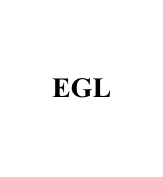
Stefan Renckens and Christian Elliott: Competition and Diversification in Institutional Proliferation: Measuring Fragmentation in Sustainable Finance Governance”:
Scholars of international relations have long studied the rapid proliferation of new institutions across areas of global governance, and whether institutional proliferation leads to fragmentation and the undermining of legacy state-led regimes. As a response, new concepts and frameworks have been introduced to better understand changing global governance arrangements including regime complexes, governance architecture, and […]

Laura Tozer: Rescaling Urban Zero Carbon Action for Systemic Transformation
How can civil society, businesses, and policy makers at all levels of government scale up climate solutions to transform our cities? Discussions on low carbon urban transitions are often focused on hierarchical ideas about scaling up in a linear manner and emphasize socio-technical innovation and market take-up in sustainability experiments. Looking beyond commercialization, this paper […]

Alexa Waud: Applying the “Politics of Decarbonization” framework to democratic interventions: Guiding impactful design and delivery
The European climate governance regime is notoriously technocratic. However, in the last few years growing pressure for climate action has crossed paths with the “deliberative wave,” participatory programmes, movement demands, and increasing recognition climate policies developed behind closed doors will not land amongst ordinary people. Now, European funders, governing bodies, and practitioners are searching for […]

Heather Millar: Stuck in the Middle: Decarbonization of New Brunswick’s electricity generation system 2010-2021
Canadian policy makers and energy scholars acknowledge that significantly reducing GHG emissions from Canada’s electricity system is a crucial step toward achieving “net-zero” emissions by 2050 (Government of Canada 2020; Dion et al. 2021). Canada is a leader globally in low-emissions intensity electricity generation (Shaffer 2021, 2) but this standing masks broad disparities between provinces […]

Sarah Sharma: Relationally Comparing the Global North and Global South: Examining Climate Resilience Across and Within Amsterdam and Dhaka
This book project is designed to examine how climate resilience policies unfold within and across two distinct cities: Amsterdam, the Netherlands and Dhaka, Bangladesh. In so doing, I build a relationally comparative framework to understand the International Political Economy and Environment (IPEE) of climate resilience in global capitalism to analyse how this policy framework unfolds […]
